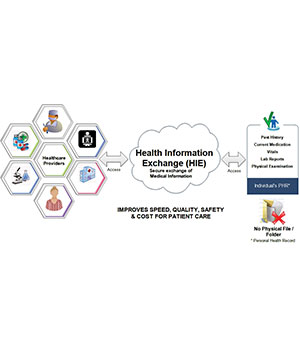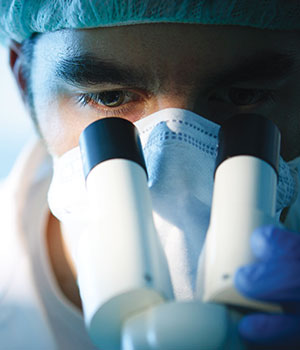
Dr. Geeta Chopra, Chief Pathologist, Metropolis Health Care Ltd, in conversation with ENN, shares her view on various segments, functions and future of biochemistry analyzers and reagents
Functioning of Biochemistry analyzers
Biochemical testing in laboratory involves tests for various organ functions like liver function tests, kidney function tests, lipid profiles, hormone testing, like TSH, FSH, LH, Prolactin, special proteins, like C3, C4, IgG, IgM, IgE, maternal screen tests “ Dual markers and triple markers, vitamin D3, various cancer markers and many other tests.

Integrate systems combining biochemistry and immunochemistry tests are gaining space. Please explain.
Integrated systems combining biochemistry and immunochemistry tests are gaining space in the market. These systems improve the workflow efficiency and deliver high throughput and fast turnaround. It helps achieve increased instrument capacity by linking two or more analyzer units with a single sample presentation mechanism. It increases assay diversity by combining general chemistry and immunoassay units in an apparently single instrument. Most of the leading vendors, like Roche, Abbott, Siemens, OCD and Beckman Coulter offer these integrated systems. Most of the large laboratories are using these systems due to increased efficiency, faster Turnaround Time and decreased man power requirement.
Clinical chemistry was one of the earliest laboratory disciplines to evolve in terms of technology and automation. With the availability of integrated systems, this journey will continue
System capabilities are fueling the growth. Please elaborate it in the Indian context.
With automated units, specimens can be identified by a unique barcode number, through which tubes can be identified and the necessary specimen processing and testing undertaken. The results can be automatically interfaced in the laboratory information system.

The sophisticated systems give good quality results, avoid pre-analytical and post analytical errors, which when put together is of critical importance to generate accurate results. It improves quicker reports helping better disease management and patient outcomes, especially in critical cases. In India, it is estimated that there are 11 such laboratories. Sophistication in biochemistry analyzers and their ready availability has helped these Labs to deliver reliable reports to the customers all over India. The maintenance of these machines require good service back up and inventory management from vendors.
Clinical chemistry is a mature market; however it has enough scope in developing countries like India. Please explain in reference with the Indian market.
Clinical chemistry was one of the earliest out of all Laboratory disciplines to evolve in terms of technology and automation. And with the availability of integrated systems, this journey is still continuing. Laboratories also have to evolve their process controls and their quality systems to make the best usage of the existing platforms. Diagnostic market is growing around 20 percent year to year basis, which implies it will keep on increasing the demand of Biochemistry analyzers for another 10 more years.
Be a part of Elets Collaborative Initiatives. Join Us for Upcoming Events and explore business opportunities. Like us on Facebook , connect with us on LinkedIn and follow us on Twitter , Instagram.











